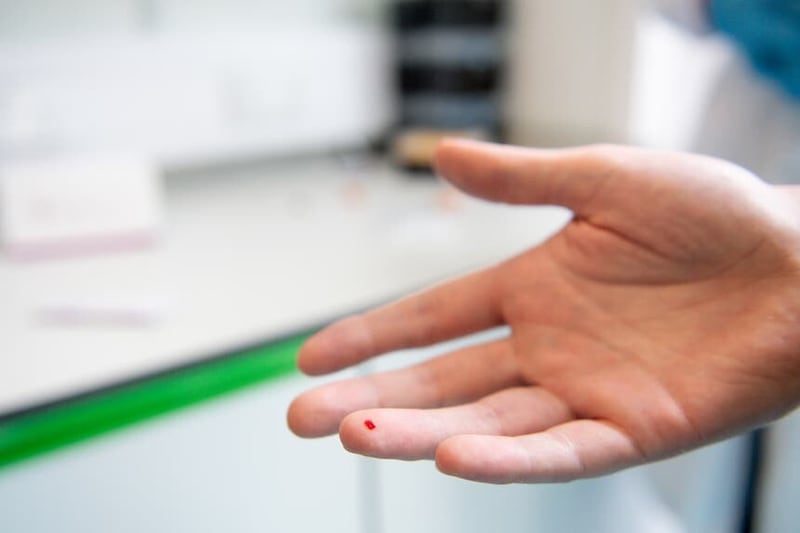Orders for at-home hepatitis C test kits have increased significantly since an official report documenting the infected blood scandal was published, according to new figures.
More than 30,000 people were infected with potentially deadly viruses between the 1970s and early 1990s as they received blood transfusions or blood products while undergoing NHS care.
After the damning report into the scandal was published, orders for NHS at-home tests increased significantly.
Figures shared with the PA news agency show that since NHS England’s online self-testing service was launched in May 2023 some 61,841 tests have been ordered.
This includes 15,463 tests ordered in the week after the Infected Blood Inquiry published its final report on May 20 – the equivalent of 25% of all orders since the service was launched a year ago.
Nearly three quarters (73%) of people who ordered a test said that their “possible route of transmission” was from a blood transfusion. Meanwhile, more than eight in 10 of the recent orders were placed by people over the age of 50 and three quarters of people who ordered the tests since May 9 were women.
One of the Report's recommendations is that anyone who had a blood transfusion prior to 1996 should be offered a test for Hepatitis C.
The Inquiry wishes to highlight that postal testing is available in England and Wales from https://t.co/9TBUK21SkL and https://t.co/eedjOtMLfv.
— Infected Blood Inquiry (@bloodinquiry) May 21, 2024
Hepatitis C is a virus that is passed on through blood-to-blood contact and infects the liver. Without treatment, it can cause serious damage to the liver.
The disease is known as the “silent killer” as some people can live with the virus for many years before realising that they are infected. But the delay in diagnosis can lead to irreparable liver damage.
Professor Sir Stephen Powis, NHS England’s national medical director, said: “It’s vital that awareness of hepatitis C and the risk factors remains high, and if you’re concerned you may have contracted the virus, the NHS is here for you.
“We would urge anyone who might have been at risk to get tested for peace of mind – there is a range of ways including via local testing programmes, and it’s really encouraging that over 60,000 people in England have now ordered one of our free home testing kits since we launched the service last May.
“The testing kit involves a finger prick so a tiny blood sample can be posted to a lab for analysis, and if there is a positive test result, you will be contacted and referred for rapid curative treatment with a free course of antiviral medicines from the NHS.”
Inquiry chairman Sir Brian Langstaff recommended that GPs should ask newly registered patients if they have ever had a blood transfusion to try to find more of the people as yet undiagnosed.
And the Hepatitis C Trust has urged anyone who had a blood transfusion before the mid 90s to get tested for the virus.
– At-home tests can be ordered at hepctest.nhs.uk.









